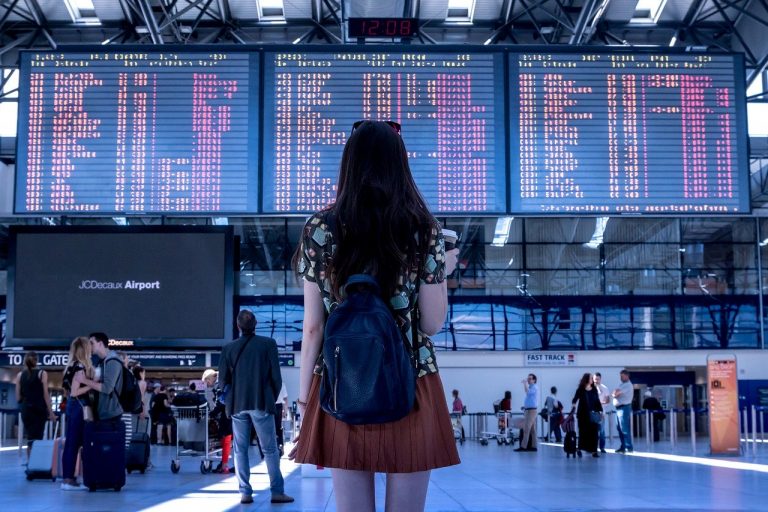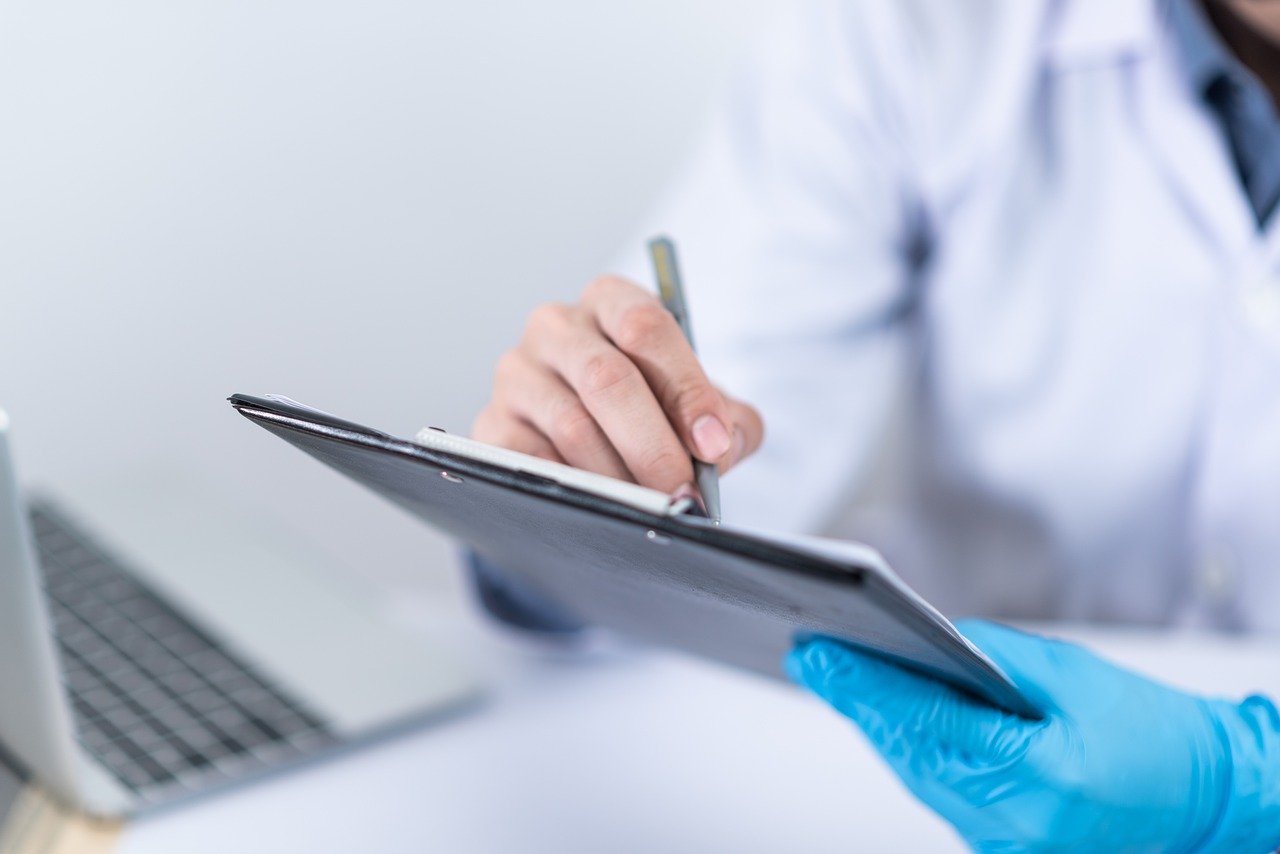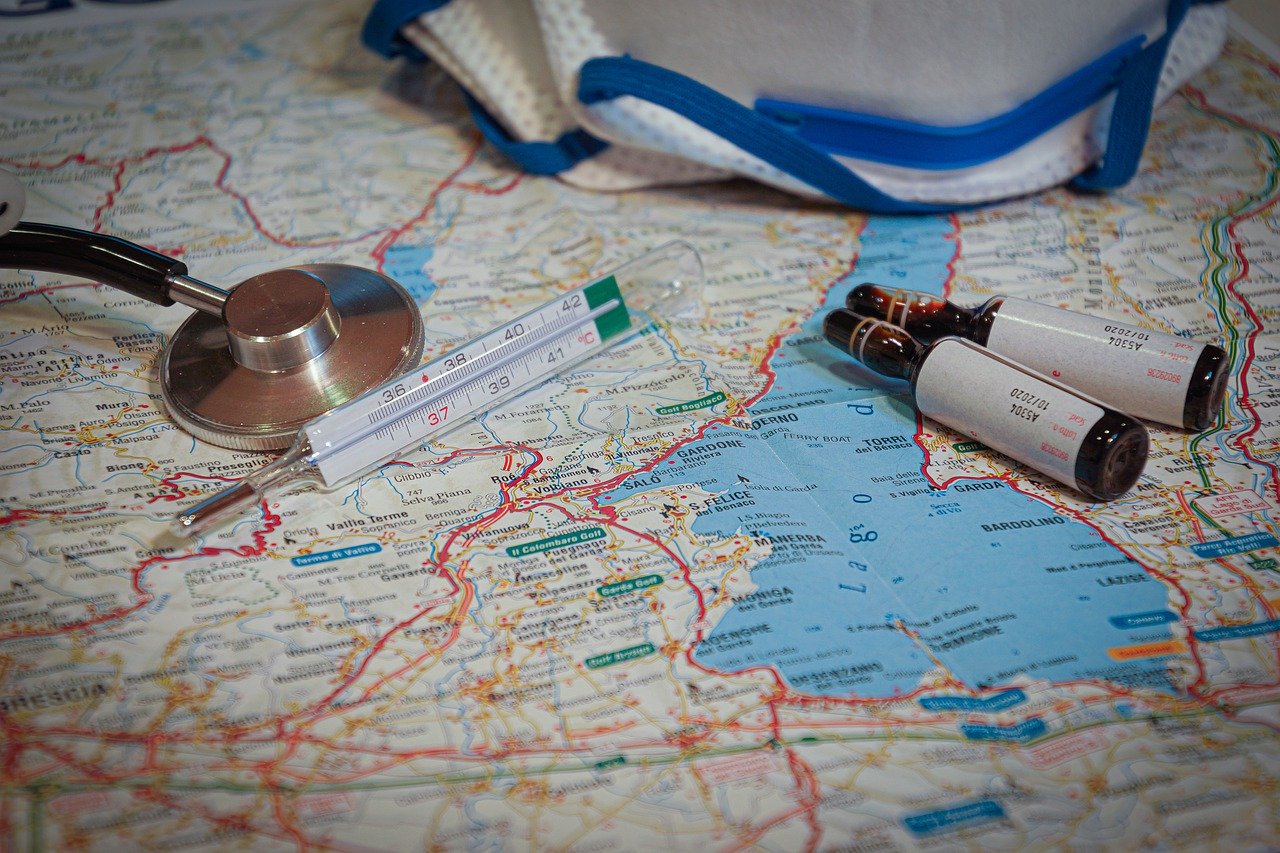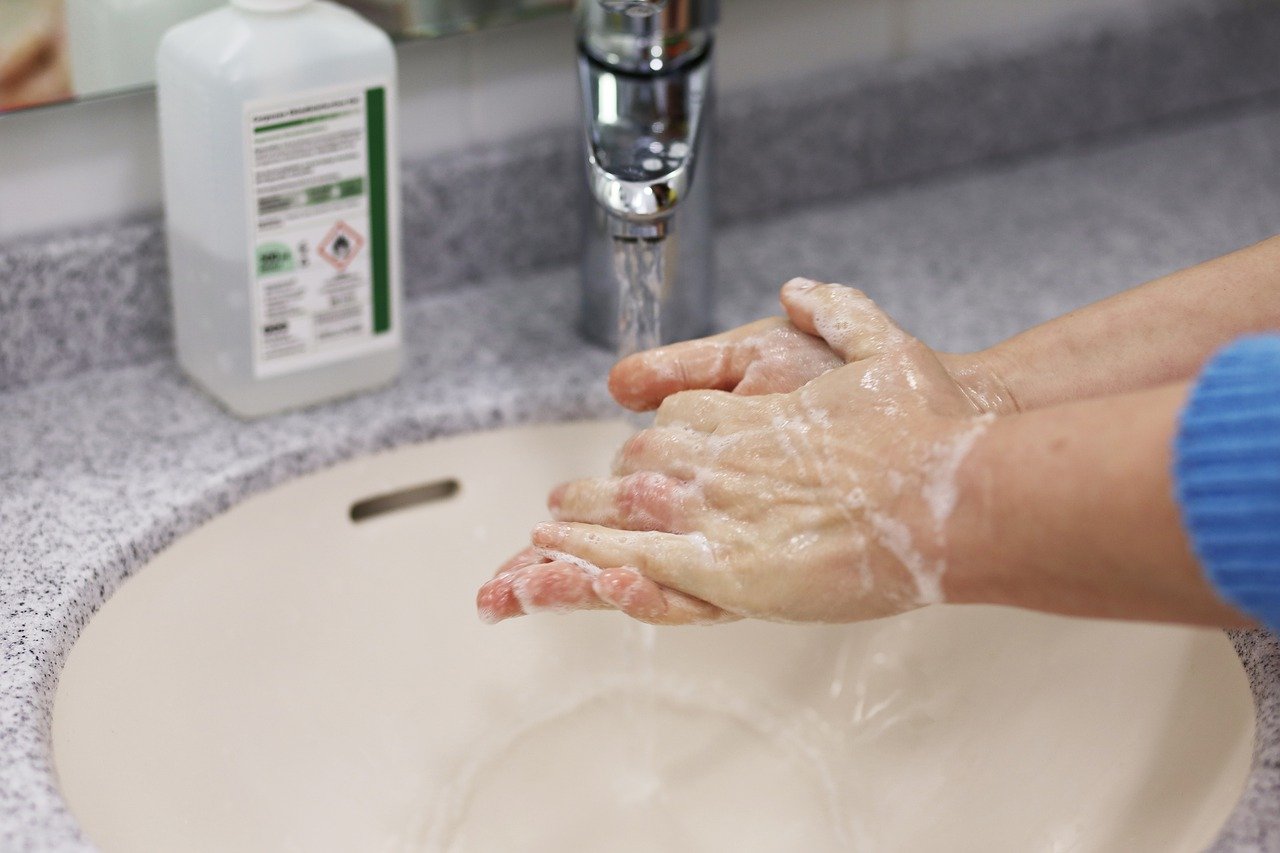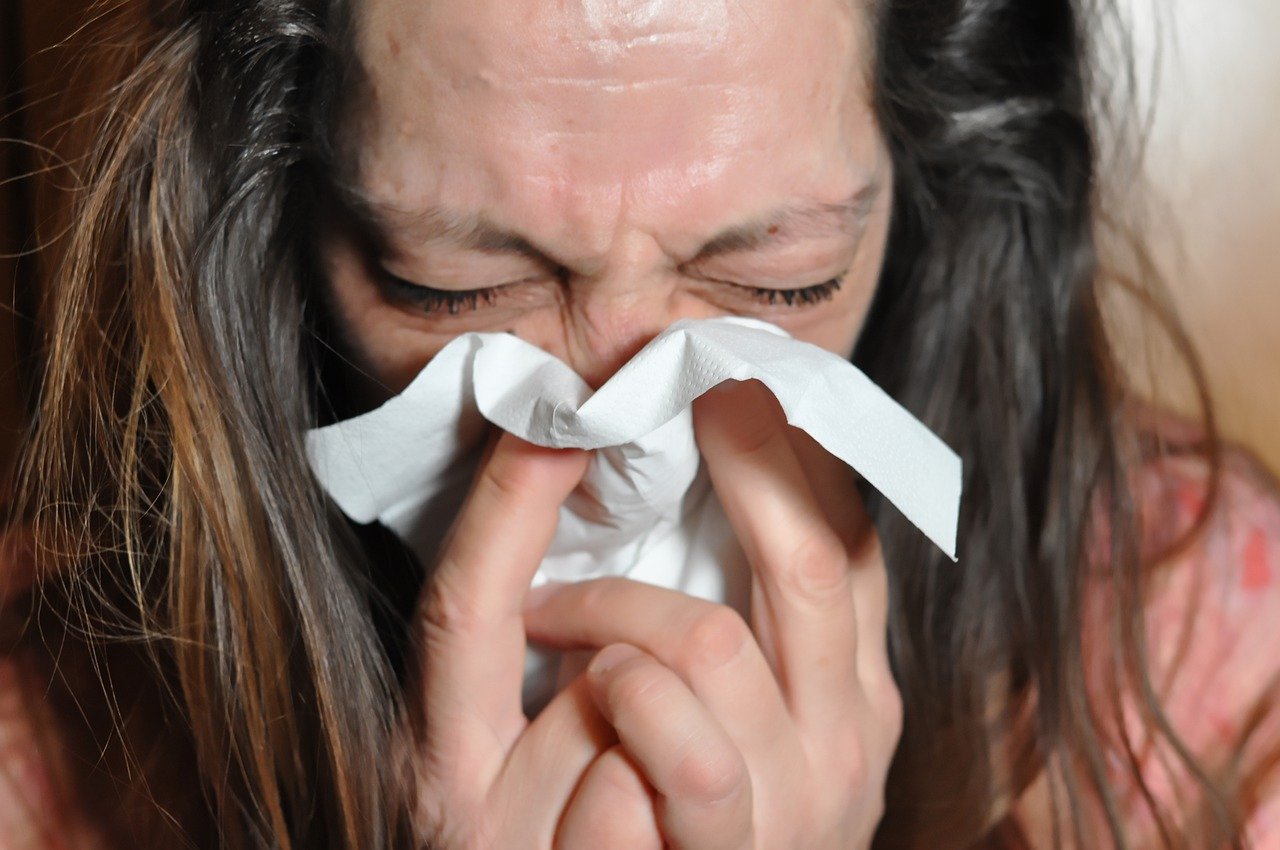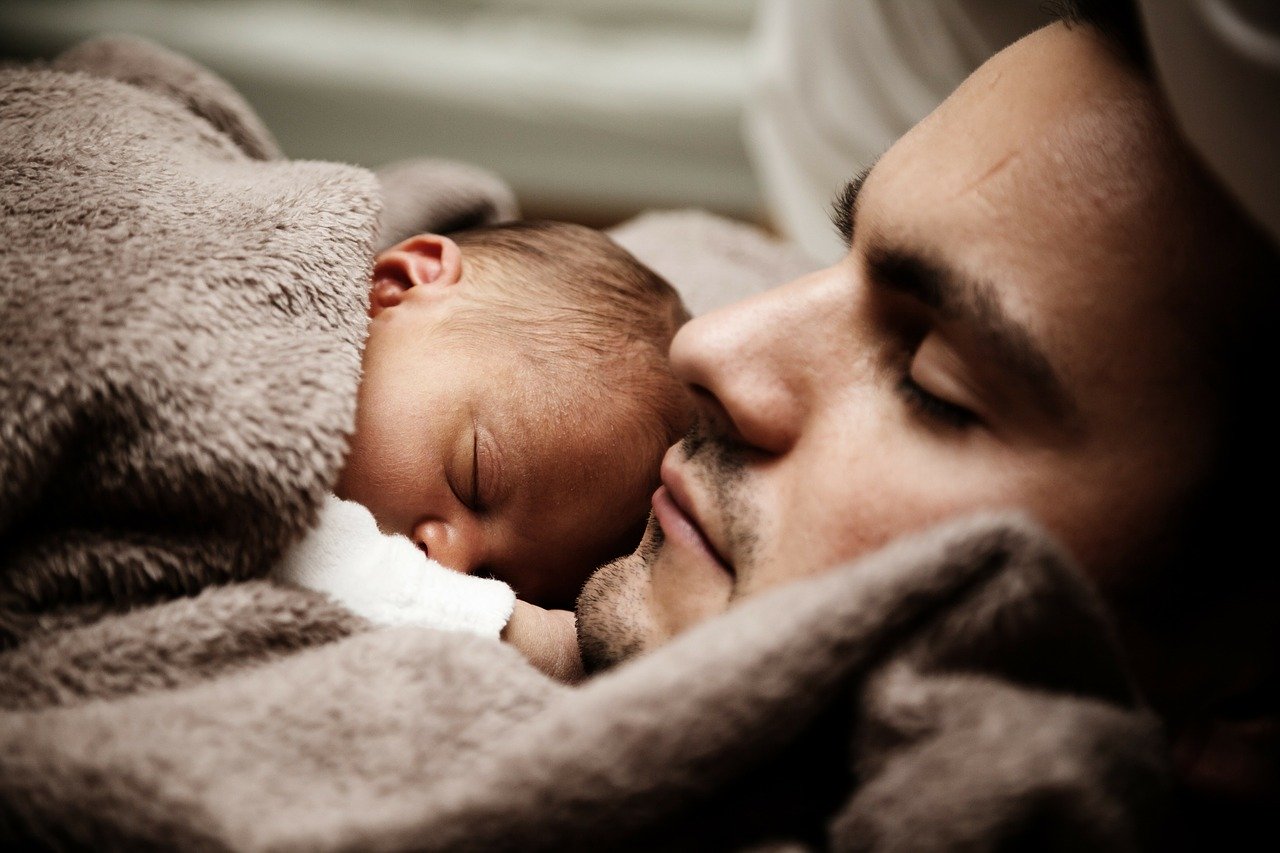Even under normal conditions, communal vehicles — planes, trains, and buses — are breeding and trading grounds for germs. Now that countries all over the world are struggling with the outbreak of the new coronavirus, travelers are rightly getting even more apprehensive about boarding a plane or using mass transit. If you’ve got places to be and you have to travel, what steps can you take to protect yourself from the coronavirus?
According to the information released by the Centers for Disease Control and Prevention (CDC), so far it seems that the main method of transmission for the coronavirus is the transfer of respiratory droplets from one person to another. These droplets are expelled during coughs and sneezes and can enter your system via your mouth or nose. It may also be possible to pick up the virus from surface contact. If an infected person coughs on their hands and then uses a door handle, for instance, the virus could survive there until you touch it and then accidentally transfer it to your face.
Although the majority of people who contract the coronavirus are going to recover after dealing with relatively mild symptoms, it’s very important to limit the spread of the illness to people who might be at greater risk. (e.g. the elderly or those with compromised immune systems.) Social isolation is a good way to limit your risk of infection — but social isolation is impossible if you’re riding a bus or a plane. We’ve taken a careful look at recommendations made by the CDC and the World Health Organization (WHO) to find out what you can do to minimize the risks you face while traveling.
The tips presented below concentrate on reducing your exposure to the virus. Remember, though, that protecting yourself is part of protecting your community. Even if the coronavirus doesn’t pose much of a threat to you, you want to avoid accidentally spreading it into new communities. Bringing the coronavirus into unaffected areas or those that lack the healthcare resources to handle an outbreak would be a serious misstep. Take these concerns into consideration when you’re weighing your travel plans now.
Look To Experts (Like the CDC And WHO) For Travel Advice
Health experts are strongly discouraging nonessential travel to the regions that are currently most affected by the new coronavirus. Current CDC recommendations advise against travel to Europe (particularly Italy), China, Iran, and South Korea, regardless of your age and susceptibility to infection. Note that the CDC also advises against flights that layover in those countries, too.
If you must travel to outbreak areas, the CDC recommends that you practice “social distancing” and isolate yourself for two weeks after returning home. This means avoiding mass transit, taxis, and rideshares, and minimizing your contact with other people. Leave the house no more than you have to, and try to stay at least six feet away from anyone. This process is intended to prevent the transmission of the coronavirus if you became infected on your trip, even if you experience mild or nonexistent symptoms.
New cases of the COVID-19 virus are being detected every day, indicating a rapid, ongoing spread. Check the CDC’s travel center carefully and frequently; restrictions and recommendations may change rapidly. The WHO also operates an international travel resource. Be prepared for social distancing when you come home.
Limit Travel, Especially If You’re In A High-Risk Group
Although official travel recommendations and restrictions are still conditional at this time, you should consider canceling travel plans at any distance (domestic and local as well as international travel) if you are at higher risk for severe coronavirus symptoms. This is a key part of trying to avoid the illness.
If you are older than 60 (the threshold set by the WHO) or have chronic medical conditions, you should do everything you can to avoid crowds. This means avoiding public transit for daily commutes. If your job exposes you to many other people, you should consider taking sick leave or working from home if at all possible. The CDC is urging employers to make telework and sick leave as freely available as they can. CDC recommendations also discourage at-risk individuals from flying or taking cruises unless such travel is absolutely necessary.
Understand The Conditions That Increase Your Coronavirus Risk
As already noted, protecting yourself is more important if you have existing medical conditions that would make infection with the coronavirus more serious for you. The CDC has highlighted the following conditions as ones that increase your risk:
- Heart disease
- Chronic lung conditions including asthma, emphysema, and bronchitis
- Diabetes or other endocrine conditions
- Chronic kidney disease
- Chronic liver conditions including hepatitis and cirrhosis
- Weakened immune system from medical treatments (chemotherapy, radiation, bone marrow transplant, corticosteroid treatments) or diseases like HIV and AIDS
- Metabolic disorders
- Current or recent (within two weeks) pregnancy
- Neurological conditions including epilepsy, cerebral palsy, stroke, muscular dystrophy, and others.
If you have any of the conditions listed here, are over 60, or are currently immunosuppressed, consider speaking to your doctor about additional steps you can take to protect yourself from COVID-19.
Understand How The Virus Affects Travel Insurance
Conventional travel insurance — specifically, the kind you can buy from airlines just before flying — can help defray the cost of canceling a trip. Such insurance does not cover all reasons for cancellation, though. Epidemics and pandemics are often specifically excluded. For the coronavirus outbreak, though, travel insurance may still have value because it can help with medical expenses during your trip and could also cover the cost of emergency evacuation. Review the available policies carefully before buying.
For full coverage of trip cancellations, the type of insurance coverage you need is Cancel For Any Reason, or CFAR. You can typically only get such insurance policies through third-party insurers, not through the airlines. These policies do give you the comprehensive coverage you need, but they are usually expensive.
Check With Your Travel Credit Card For Refund Help If You Cancel A Trip
If you use a credit card that has travel perks, part of your cardholder agreement may help you with travel insurance and refunds on canceled trips. Policies vary from card to card, so you may or may not be covered. Review your credit card policy carefully to see what help is available; don’t be afraid to call your company directly to ask questions. Review these options before canceling any scheduled trip or booking a new one.
Be Aware Of Hotel Closures
Hotels are hotspots of infection risk for both guests and workers during a pandemic like the coronavirus. The large number of shared spaces in a hotel and the frequent turnover of guests increases the amount of human contact significantly. If your destination suffers an outbreak, hotels in the area may be affected. Several hotel chains are already closing dozens of locations out of coronavirus fears. Guests are usually issued refunds automatically. Many chains that normally charge cancellation fees are waiving these costs for guests who choose to cancel their reservations.
Airbnb is now allowing guests to cancel reservations without charge and offering full refunds. This service is available only for designated “severely impacted areas,” but the company updates the list of impacted areas daily. This means reservations you’re currently holding could fall under the full refund policy if the destination suffers a coronavirus outbreak before your stay.
Social Distancing Works
If you’re planning a trip that isn’t essential, like a vacation, rescheduling or canceling it may be the best thing to do. If you have to travel, remain alert to your surroundings and do everything you can to avoid people exhibiting symptoms of respiratory trouble, like coughing. If you find yourself on an under-booked plane flight (increasingly common with the reduced number of people traveling now), pick seats that put as much distance as possible between you and other passengers.
The close contact zone to be avoided for the common flu is coming within three feet of an infected person. Health experts are recommending increasing this distance to six feet for the current coronavirus. Airplane travel makes maintaining this distance difficult, even when planes are booked below capacity. The constant traffic up and down the aisle is likely to breach the close contact zone repeatedly while you are seated.
Aisle seats will expose you to the closest contact with other people and objects that might potentially carry the virus. Whenever possible, sit in a window seat to give yourself more distance from the aisle.
Get Your Vaccines Fully Up To Date (Including A Flu Shot) If You Travel
The latest data shared by the CDC (reported on February 20, 2020) shows that this year’s flu vaccine is more than 50 percent effective in reducing the severity of flu symptoms enough to preclude the need for a visit to a doctor.
No vaccine is 100 percent effective, and they can sometimes produce mild symptoms of the infection they’re intended to fight. Vaccine side effects tend to vary from person to person. But vaccines are far safer than the illnesses they protect you against.
International travelers are often required to get specific vaccinations (such as malaria and typhoid) when traveling to certain destinations. Health experts now recommend getting a flu shot before traveling to keep your immune system as strong as possible. This will protect you from all sorts of illnesses, including the COVID-19 virus.
Frequent Handwashing Can Reduce The Risk Of Illness
Whether you’re flying, taking the bus, or traveling by train, there are no hard and fast rules when it comes to how frequently your hands need to be washed. You’ll need to consider the situation you’re in. You should look at the recommendations from the CDC and adapt those recommendations to your circumstances.
For example, the CDC suggests that you should wash your hands after being out in public. As soon as you arrive at your destination, you’ll want to wash your hands immediately. You should do this even if you’re taking the subway or traveling by Uber. You’ll want to wash your hands prior to eating as well. If you’re about to enjoy a meal in-flight, you should try to wash your hands or use hand sanitizer before you dig in. Naturally, you’ll want to wash your hands after using the bathroom, and you should make sure your hands are washed after you cough, sneeze, or blow your nose. Try to use your own judgment when you’re deciding what to do. If your hands have come into contact with surfaces that other people have been touching, such as the handrail on the stairs, you should wash your hands immediately.
In addition to regular handwashing, health experts have said that people should try to avoid touching their face and eyes whenever possible. Washing your hands is able to prevent around 20% of respiratory illnesses, like the coronavirus or the common cold. It can also prevent approximately 30% of illnesses related to diarrhea.
When washing your hands isn’t an option, hand sanitizer can be an effective alternative. Like soap, hand sanitizer is able to destroy germs. It’s possible to bring small bottles with you when you fly. You should use an alcohol-based sanitizer that’s 60% alcohol at a minimum. You should only rely on hand sanitizer when you don’t have access to soap and water.
Avoid Touching Your Face As Much As Possible
The virus is able to enter the body via your mouth, nose, and eyes. Because of this, you’ll want to avoid touching your face as much as you can, especially if your hands haven’t been washed.
If you’re in the habit of touching your face, you should try to keep your hands in your pocket. Eventually, you’ll adjust to keeping your hands down. You should aim to be cautious when it comes to touching public surfaces. For example, if you need to open the door of a public bathroom, you might want to use a tissue when you grip the door handles. You should do your best to keep your hands germ-free so that you’ll be okay even if you do touch your face.
Don’t Touch Transit Surfaces Without Wiping Them Down
The CDC recommends wiping down frequently-touched surfaces to protect yourself from infection. For example, you may want to wipe down tray tables, armrests, or your devices, like your phone or tablet. If you plan on resting your head against the window of a bus or plane, you should wipe that down as well. If you’re going to be gripping plastic loops or a metal bar in order to stabilize yourself, you should wipe these surfaces down as well.
What kinds of products should you use for this? Cleaning products that are alcohol-based are able to eliminate the virus, as can products that contain diluted bleach. The CDC has stated that the majority of household disinfectants that have been registered via the EPA (Environmental Protection Agency) will work effectively.
Even after surfaces have been disinfected, you should do your best to avoid touching your face. Remember, you should be washing your hands at every opportunity.
Don’t Use The Bathroom On The Plane
The bathrooms on a plane are used by many passengers. It’s likely that every surface in the lavatory has been touched by someone, from the door handle to the flush button. It’s easy to come into contact with germs and pathogens in this space. Because of the risk of the Coronavirus, you should avoid using the bathroom if possible.
Only use the bathroom if it’s completely necessary. Health professionals strongly suggest staying out of this space. If you do need to use the bathroom, you should carefully wash your hands before leaving. When you sit back down, you should use hand sanitizer.
Stay Away From People That Are Sneezing And Coughing
You should stay away from anyone that is openly sneezing or coughing to protect yourself against the flu, COVID-19, and other types of infectious diseases. According to the CDC, the virus is able to be transmitted at a distance of approximately six feet. Ideally, you should try to keep even more distance than that. If you’re around someone that’s been showing signs of illness, you should wash your hands right away. If that’s not an option, use hand sanitizer instead.
Choose The N95 If You Need To Wear A Mask
If you want a mask that will protect you from the majority of pathogens, the N95 face mask is an excellent option. With that said, not everyone needs to wear a mask, and masks don’t need to be worn all the time. For the most part, it’s only necessary to don face masks if they work in the healthcare industry.
Aside from that, you should put on a face mask if:
- You’re showing respiratory illness symptoms
- You’re immunocompromised
- You’ll be around someone that has been diagnosed with COVID-19
The incubation period for the coronavirus is between 2 and 14 days. Because of this, a face mask could keep you safe. Not all reports are in agreement when it comes to face masks being effective. With that said, when people protect themselves by wearing face masks and washing their hands, reports show that the risk of the flu is decreased by 70%.
Although COVID 19 is an airborne pathogen, it’s like that the illness spreads when someone that is infected coughs or sneezes, leaving droplets in the air. Wearing a mask can you protect you from these droplets.
Don’t Bother Wearing Disposable Gloves
If you’re sticking to the rest of the advice on this list, you shouldn’t need to wear disposable gloves in order to protect yourself. You may be surprised to hear this. After all, it’s standard for healthcare workers to wear gloves when they’re interacting with patients. There are a number of differences that you’ll want to keep in mind.
The purpose of gloves is to create a barrier between contaminated surfaces and your hands. If you’re eating or touching your face, that barrier will no longer be effective. Experts say that the majority of people don’t use gloves properly. This makes these kinds of slip-ups more likely to occur.
If you were to wear gloves while traveling, you would need to remove the gloves any time you wanted to eat or touch your face. After that, you’d have to immediately replace them with a new pair of gloves. You’d have to do all of that without touching surfaces with your bare hands or touching the parts of your gloves that were in contact with these surfaces. This isn’t something most people can manage.
Aside from that, experts have found that wearing gloves causes people to behave less cautiously. People wearing gloves might touch a door handle or scratch their nose without a second thought.
Get The Rest You Need
Your health depends on sleep. When you’re not getting enough sleep, it could leave you feeling exhausted, and your immune system could be weakened. You need to sleep so that your body is able to keep you healthy. With that said, you should take precautions if you sleep on a flight, particularly if you’re seated near someone that is showing signs of illness.
Fully Comply With Health Screenings
In addition to trying to avoid the novel coronavirus, you’ll want to make sure you show patience and fully comply with health screenings as you travel. It’s likely that health screenings at travel hubs will be frequent. It’s common for people to feel frustrated when they have to wait in security lines, and additional screenings may leave you feeling more stressed. Remember, these people are just doing their jobs. Cooperate with screenings and follow instructions.
Find Ways To Stay Calm
Traveling can be stressful at any time, which can be a health risk. Stress can take a toll on you, and it can leave you susceptible to a variety of illnesses. It’s possible to protect yourself against the coronavirus while traveling, but there is a limit to what you can do. Still, you should take basic precautions to keep yourself safe.
Be aware of the risks you’re facing and do what you can to stay safe while you travel. If you’re going to be traveling this spring, you should keep this advice in mind.
References:
CDC: Coronavirus (COVID-19) https://www.cdc.gov/coronavirus/2019-ncov/index.html
- 15 Best Free Online Virtual Summer Camps for Kids (2022) - July 6, 2021
- Expert Roundup: Advice to Mitigate the Effects of Coronavirus - March 22, 2021
- Best Gifts for Travelers - January 15, 2021
